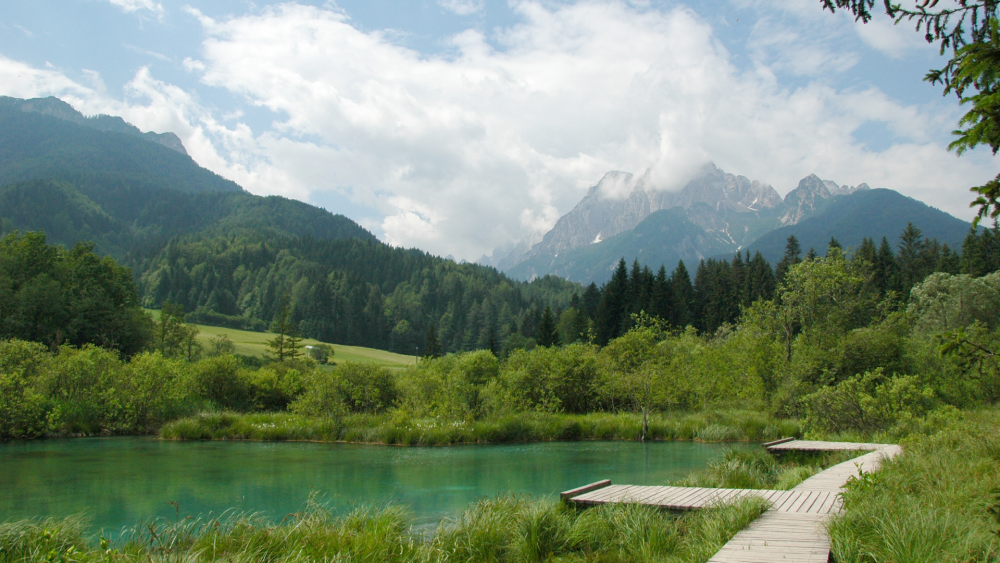For the company Savske elektrarne Ljubljana, sustainability is of paramount importance as it signifies care for the environment and society. This means that the company operates in a manner that ensures the long-term preservation of natural resources and promotes the well-being of people directly connected to it and society as a whole. The company has a long history of association with the Sava River and harnessing its hydropower potential. Through its operations, the company contributes to a reliable, secure, and uninterrupted supply of electricity from domestic sources.
Environmental stewardship has become a constant companion to human interventions in nature. This is evident in the comparison between the Green Book on Environmental Endangerment in Slovenia (Natural History Society of Slovenia, Ljubljana, 1972) and the book Nature of Slovenia, State and Perspectives (Ecologists’ Society of Slovenia, 1996). The state of nature in Slovenia has gradually improved through the efforts and contributions of all residents, companies, and organizations living and operating in Slovenia.
Every human intervention in nature results in certain changes and impacts. People shape their environment and adapt it to their needs and desires.
This cannot be avoided, even if these interventions bring about changes that disrupt or harm other living beings in the environment. The two billion people enjoying the benefits of electricity supply are a significant and increasing number. Hydropower plants, depending on their construction methods, represent a greater or lesser intrusion into the natural environment. The operation of existing hydropower plants and the construction of new ones will be inevitable for humanity. A modern approach to hydropower plant construction involves project solutions and methods that minimize environmental impact, taking into account the principles of sustainable development that seek a balance between humans and nature.
The design and operation of hydropower plants consider environmental protection and the rational use of natural resources, primarily water, as well as control of emissions that could appear in the air, water, or soil.
Monitoring systems at all hydropower plants ensure safe, reliable, and environmentally friendly operation of facilities, complying with all the conditions specified in the legislation and permits (location, construction, usage, and water management permits). This also ensures the protection of flora, fauna, and natural and cultural heritage. The company achieves this by training its employees and collaborating with relevant state authorities, institutions, organizations, and entities (ministries, municipalities, public companies, universities, public institutions).
The company has successfully carried out major ecological remediation of two reservoirs. A significant remediation of the Zbilje Lake near the Medvode Hydropower Plant was performed in 1996 and 1997. This was the first such case in Slovenia and served as a model for such remediation. The project involved the construction of dikes and the establishment of an environmentally friendly sludge disposal site behind them. The sludge was pumped to the disposal site and, after settling, work was done to stabilize the deposits. This project demonstrated the challenges of ecological remediation, as it was evident during the design phase that it would not be possible to obtain a location for sludge disposal, even if it was environmentally sound (sealed). The disposal site had to be located within the lake, which meant that the investment would be purely ecological.
From an energy perspective, this was a zero investment because the energy-utilizable volume of the lake remained the same; it was only a matter of relocating the sludge. This relocation resulted in an ecological improvement, as the sludge is no longer present on the surface during basin fluctuations, where it previously caused decay. In 1998, the remediation of the Moste Dam in Jesenice was carried out. A significant section of the Sava River near the Slovenski Javornik area and along the central municipal wastewater treatment plant in Jesenice was naturally rehabilitated and equipped with promenades on higher ground.
These environmental contributions were made so far without any direct economic impact. However, the environmentally friendly production process is expected to become a future economic direction stemming from the liberalization of the electricity market in Europe. The internal market in the Republic of Slovenia was opened on April 15, 2001, and the external market has been open since January 1, 2003. Producers of so-called green electricity from renewable sources are one of the features of this market and have certain advantages in some areas because of their higher costs per unit of production.


